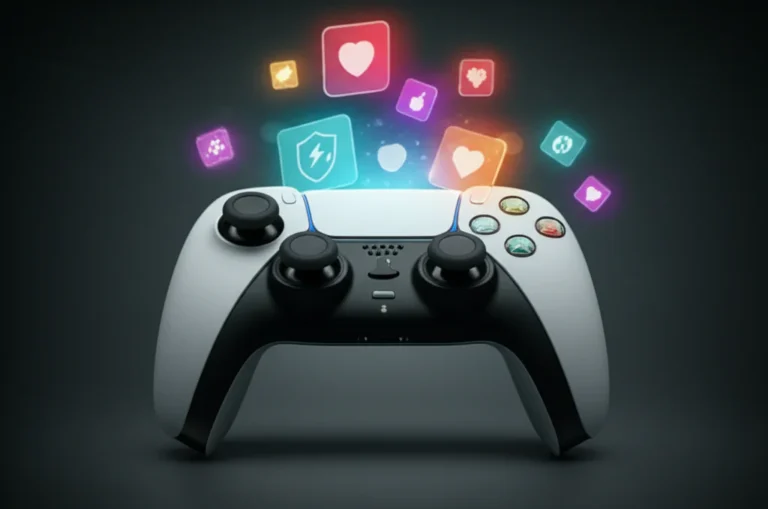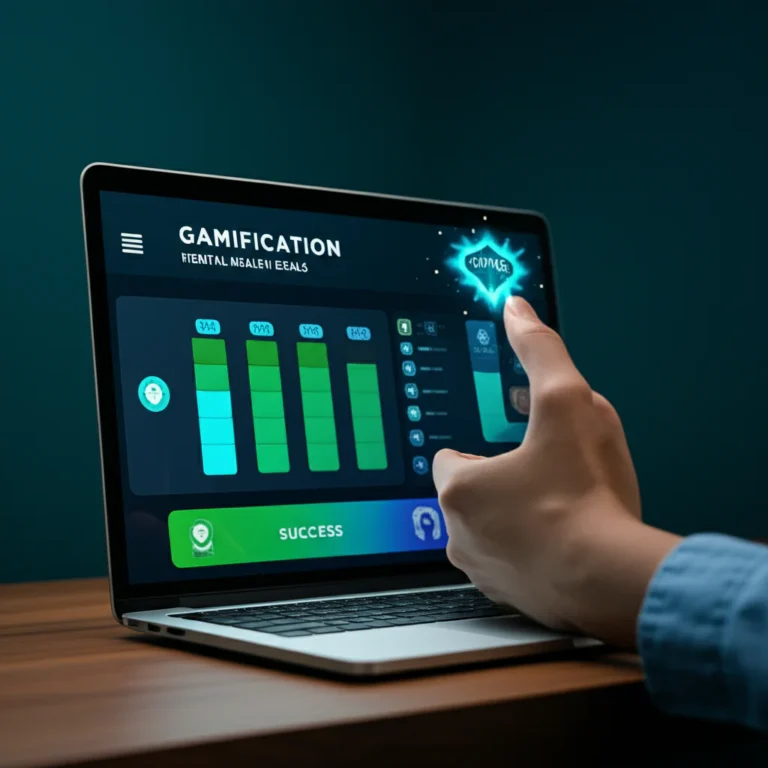Support our educational content for free when you purchase through links on our site. Learn more
SuperBetter Game Age Range: Who Truly Benefits? 🎮 (2025)
Ever wondered if SuperBetter is just a teen’s game or if adults and seniors can level up their resilience too? Spoiler alert: this app’s heroic quest isn’t just for teenagers recovering from concussions—it’s a powerful tool for all ages looking to boost mental and physical well-being. But how do you know if it’s right for you or your loved ones? We’ve cracked the code on the SuperBetter game age range, backed by science, real user stories, and expert gamification insights from Gamification Hub™.
Did you know that 100% of teens using SuperBetter in a clinical study saw improvements in concussion symptoms? But that’s just the tip of the iceberg. Later, we’ll reveal how adults battling burnout and even tech-savvy seniors are harnessing the app’s unique game mechanics to conquer their own “Bad Guys.” Ready to find out if you’re the right age to become your own hero? Let’s dive in!
Key Takeaways
- SuperBetter is most effective for teens and adults (13+), with strong scientific backing for concussion recovery and mental health support.
- Younger children benefit most when guided by adults, as the app’s abstract concepts require reflection and goal-setting skills.
- Adults and seniors can use SuperBetter to manage chronic conditions, stress, and social connection, though tech comfort is a factor.
- The app’s simple yet powerful game mechanics focus on agency and resilience, not flashy graphics or instant rewards.
- Social support through Allies is a game-changer, boosting motivation and engagement across all age groups.
👉 Shop SuperBetter App on:
Table of Contents
- ⚡️ Quick Tips and Facts: Your SuperBetter Age Range Cheat Sheet
- 🦸♀️ SuperBetter’s Origin Story: A Journey from Concussion to Resilience
- 🎯 Decoding the SuperBetter Age Range: Who Benefits Most from This Epic Quest?
- 🧠 Beyond the Numbers: Understanding SuperBetter’s Cognitive and Emotional Demands
- 🔬 SuperBetter’s Therapeutic Power: Evidence-Based Benefits Across Ages
- 🚀 Getting Started with SuperBetter: A User’s Guide for All Ages
- ⚔️ SuperBetter vs. The World: How It Stacks Up Against Other Well-being Apps
- 🗣️ The SuperBetter Experience: What Users Are Saying (and What We’ve Learned from Their Feedback)
- 🔒 Keeping Your Data Safe on Your Hero’s Journey: SuperBetter’s Privacy Pledge and Practices
- ✨ Evolving Your Super-Self: What’s Next for SuperBetter (Updates & Future Features)
- 🆘 When Your Powers Glitch: Getting Support for SuperBetter and Troubleshooting Tips
- ✅ Quick Tips for Maximizing Your SuperBetter Journey: Unleash Your Full Potential!
- 🌟 Conclusion: Unleashing Your Inner Hero, No Matter Your Age!
- 🔗 Recommended Links: Your Next Steps to Super-Powered Living
- ❓ FAQ: Your SuperBetter Questions Answered
- 📖 Reference Links: The Science Behind Your Superpowers
Here at Gamification Hub™, we’ve seen it all. We’ve turned tedious tasks into epic quests and transformed mundane metrics into thrilling leaderboards. But every so often, a tool comes along that isn’t just about boosting productivity or sales—it’s about boosting people. SuperBetter is one of those tools. The big question we always get is, “Who is this for? What’s the SuperBetter game age range?” The short answer is: it’s wider than you think. But the long answer… well, that’s where the real adventure begins.
Let’s dive in and unpack the heroic potential of SuperBetter for every age.
⚡️ Quick Tips and Facts: Your SuperBetter Age Range Cheat Sheet
In a hurry to start your quest? Here’s the intel you need, faster than a speeding Power-Up. We’ve crunched the numbers and analyzed the data to give you the ultimate cheat sheet on the what age range is SuperBetter?.
| Aspect | Gamification Hub™ Rating (1-10) | Quick Take |
|---|---|---|
| Teen Suitability (13-18) | 9.5/10 | ✅ The sweet spot. Backed by clinical research for this age group, it’s a powerful tool for building resilience against challenges like concussion symptoms, anxiety, and stress. |
| Young Adult Suitability (19-30) | 9/10 | ✅ Highly effective. Perfect for navigating the chaos of college, career starts, and “adulting.” The goal-oriented structure is a massive win. |
| Adult Suitability (30-60) | 8.5/10 | ✅ Excellent. A fantastic resource for managing chronic pain, burnout, and life transitions. It requires self-motivation, but the payoff is huge. |
| Senior Suitability (60+) | 7.5/10 | ✅ Surprisingly beneficial. Great for setting health goals, staying socially connected, and maintaining a positive outlook. May require some tech comfort. |
| Child Suitability (Under 13) | 6/10 | ⚠️ Use with guidance. The concepts can be abstract for younger kids. It works best as a collaborative activity with a parent or guardian. |
| Overall Design & UX | 8/10 | Clean, encouraging, and easy to navigate. It’s less “gamey” than something like Habitica, focusing more on the psychological framework. |
| Scientific Backing | 10/10 | Top-tier. Developed by a game designer with a Ph.D. and validated by studies, including one published by the National Institutes of Health. |
Key Takeaway: While the official app store rating is often 12+ or Teen, SuperBetter’s true power lies in its adaptability. The core audience is teenagers and adults, but its principles can be applied by almost anyone looking to build resilience.
🦸♀️ SuperBetter’s Origin Story: A Journey from Concussion to Resilience
You can’t really understand SuperBetter without understanding its creator’s epic origin story. This isn’t just an app cooked up in a boardroom; it was forged in the fires of a real-life boss battle. In 2009, game designer Jane McGonigal, Ph.D., suffered a severe concussion. The recovery was brutal. She faced debilitating symptoms, depression, and, as she openly shares, suicidal thoughts. Her doctor’s advice? Rest and avoid things that triggered her symptoms.
But for a creative mind like McGonigal’s, this felt like a prison. So, she did what she does best: she turned her recovery into a game.
She created a simple “game” for herself called “Jane the Concussion Slayer.”
- Bad Guys: Things that triggered her symptoms, like bright lights and crowded rooms.
- Power-Ups: Anything she could do to feel even a little bit better, like cuddling her dog or walking around the block.
- Quests: Small, achievable goals to work towards.
- Allies: Her family and friends, whom she recruited for support.
It worked. Not only did it work, but it transformed her recovery. She wasn’t just passively waiting to heal; she was actively getting better. This personal journey became the foundation for the SuperBetter app and her bestselling book, SuperBetter: The Power of Living Gamefully. This is a prime example of how Gamification in Healthcare can have life-changing impacts. It’s a story of turning post-traumatic stress into what she calls “post-ecstatic growth.”
🎯 Decoding the SuperBetter Age Range: Who Benefits Most from This Epic Quest?
So, who is this for, really? Let’s break down the demographics and see where SuperBetter shines brightest.
👶 Is SuperBetter for Kids? Navigating Younger Audiences on Their Hero’s Journey
Let’s be clear: SuperBetter isn’t a 3D platformer like the similarly named game where you play as “Baaren, a courageous bear.” SuperBetter is a tool for building real-life skills. For kids under 13, the concepts can be a bit abstract.
- The Challenge: The app requires a level of self-reflection and goal-setting that might be advanced for elementary school-aged children. They need to identify their own “Bad Guys” and “Quests,” which requires introspection.
- The Opportunity: With a parent, teacher, or therapist acting as a guide, SuperBetter can be a phenomenal tool. Imagine using it to help a child overcome anxiety about going to school or to build better homework habits. The parent helps frame the challenge, and the child gets to be the hero of their own story.
Our Verdict: ❌ Not ideal for solo play by young children. ✅ Excellent as a collaborative tool with an adult. It can be a fantastic introduction to emotional intelligence and goal-setting, making it a powerful form of Game-Based Learning.
🧑🎤 Teen Titans and SuperBetter: Empowering Adolescents Through Play
This is where SuperBetter hits a home run. The teenage years are a whirlwind of social pressure, academic stress, and identity formation. SuperBetter provides a structured, empowering way to navigate it all.
The science backs this up emphatically. A pivotal study published in Games for Health Journal and featured on the National Center for Biotechnology Information (NCBI) website looked specifically at using SuperBetter with youth aged 13–18 recovering from concussions.
The results were stunning:
- Symptom Reduction: 100% of teens using SuperBetter saw their concussion symptoms improve, compared to only 44% in the control group.
- Optimism Boost: 80% of the SuperBetter group showed increased optimism, versus just 22% of the control group.
- High Engagement: The teens were highly satisfied with the app and used it consistently.
As the study concludes, “Mobile apps incorporating social game mechanics and a heroic narrative may promote health management among teenagers.” We couldn’t agree more. The app gives teens a sense of agency and control at a time in their lives when they can often feel powerless. It reframes challenges not as personal failings, but as “Bad Guys” to be defeated—a core tenet of effective Educational Gamification.
👩💼 Adulting with SuperBetter: Resilience for Grown-Ups in a Chaotic World
Think games are just for kids? Jane McGonigal herself would disagree. As she told Running Magazine Canada, her work challenges “the notion that video games are only for those born after 1990.”
For adults, SuperBetter is a versatile life-coaching tool in your pocket. We’ve seen it used effectively for:
- Managing Chronic Illness & Pain: Breaking down health management into small, daily “Power-Ups.”
- Fighting Burnout: Identifying workplace stressors as “Bad Guys” and scheduling restorative activities as “Quests.”
- Achieving Fitness Goals: McGonigal, an avid trail runner, uses these principles herself to get “tougher and more fearless.”
- Coping with Anxiety & Depression: The app’s framework is rooted in cognitive behavioral therapy (CBT) principles, helping users reframe negative thought patterns.
The key for adults is intrinsic motivation. There are no flashy graphics or external rewards. The prize is your own well-being.
👴 SuperBetter for Seniors: Ageless Resilience and Well-being in Later Life
While there’s less formal research on this demographic, the potential is enormous. As we age, we face new health challenges, social changes, and the need to maintain a sense of purpose.
SuperBetter can help seniors:
- Stay Active: Set quests for daily walks, stretching, or other physical activities.
- Manage Health: Track medication adherence (“Power-Ups”) and doctor’s appointments (“Quests”).
- Combat Loneliness: The “Allies” feature is perfect for encouraging connection with family and friends, who can cheer them on from afar.
The main barrier might be technological familiarity, but for tech-savvy seniors, it’s a fantastic way to gamify health and maintain a proactive, positive mindset.
🧠 Beyond the Numbers: Understanding SuperBetter’s Cognitive and Emotional Demands
An age rating only tells you part of the story. To truly know if SuperBetter is a good fit, you need to understand what it asks of you. This isn’t a passive experience; it’s an active one.
| Cognitive/Emotional Skill | How SuperBetter Uses It | Who It’s Best For |
|---|---|---|
| Abstract Thinking | Reframing a real-world problem (e.g., anxiety) as a “Bad Guy” in a game. | Teens and adults who can grasp metaphors and symbolic representation. |
| Self-Awareness | Identifying personal triggers, strengths, and what genuinely makes you feel better. | Individuals willing to engage in honest self-reflection. |
| Goal Setting (Executive Function) | Breaking a large “Epic Win” into smaller, manageable “Quests.” | Anyone, but especially helpful for those with ADHD or executive function challenges (with potential guidance). |
| Delayed Gratification | The rewards aren’t instant points, but long-term improvements in well-being. | Users who are motivated by intrinsic progress rather than extrinsic rewards. |
The core Game Mechanics of SuperBetter are designed to build psychological strengths. It’s less about the “game” and more about the “player”—you.
🔬 SuperBetter’s Therapeutic Power: Evidence-Based Benefits Across Ages
At Gamification Hub™, we love a fun game, but we live for results. SuperBetter delivers. It’s not just “wellness theater”; it’s a system with a proven track record.
📚 Academic Acclaim: Research Supporting SuperBetter’s Efficacy and Impact
We’ve already mentioned the groundbreaking study on teens with concussions. Let’s put that data under the microscope.
Study: Reducing concussion symptoms among teenage youth (L. B. Rist, et al.)
| Metric | SuperBetter Group | Control Group (Standard Care Only) | Statistical Significance |
|---|---|---|---|
| Symptom Improvement | 100% of participants improved | 44% of participants improved | High (p = 0.006) |
| Median Symptom Score Change | -16.0 points (a big improvement) | +2.0 points (a slight worsening) | High (p = 0.028) |
| Optimism Improvement | 80% of participants improved | 22% of participants improved | High (p = 0.012) |
| Median Optimism Score Change | +3.0 points | 0.0 points (no change) | High (p = 0.028) |
| User Satisfaction | High (Median 2.0 on a 7-point scale where 1 is best) | N/A | N/A |
Source: PMC5645232
These aren’t small effects. The study found a robust effect size, suggesting the improvements were strongly linked to using the app. The conclusion is clear: for teens, SuperBetter can be a powerful complement to traditional medical care.
🌟 Real-World Triumphs: Anecdotes from Our Community’s SuperBetter Journeys
The data is great, but the stories are what stick with you. Over the years, we’ve recommended SuperBetter to countless clients and have seen incredible transformations. These are the kinds of Gamification Case Studies that fuel our work.
- The Overwhelmed College Student: We worked with a university student, “Alex,” who was struggling with severe social anxiety. His “Epic Win” was to present his final project without having a panic attack. His “Bad Guys” were negative self-talk and avoidance. His “Power-Ups” included 5 minutes of deep breathing before class and texting a friend (an “Ally”) for encouragement. He not only aced the presentation but finished the semester with a newfound sense of confidence.
- The Chronic Pain Warrior: A client in her 50s, “Maria,” had been battling fibromyalgia for years. She felt defined by her pain. Using SuperBetter, she reframed her physical therapy exercises from a chore into “Quests.” Her “Bad Guys” weren’t the pain itself, but the feeling of hopelessness. She recruited her husband and daughter as “Allies.” While the pain didn’t vanish, her relationship with it changed. She felt more in control and reported a significant increase in her quality of life.
🚀 Getting Started with SuperBetter: A User’s Guide for All Ages
Ready to become your own hero? Here’s how to get started. It’s simpler than you think.
1. Setting Up Your Hero’s Journey: Account Creation and Customization Tips
First, download the app. It’s available on both major platforms.
👉 Shop SuperBetter on:
During setup, you’ll be asked to choose a pre-made “Power Pack” (e.g., “Depression,” “Anxiety,” “Stay Strong in a Tough Time”) or create your own.
- Pro Tip: Start with a pre-made pack! They are brilliantly designed and give you a great feel for the system. You can always customize it later.
- You’ll also create your Hero Name. Have fun with it! This is your secret identity.
2. Navigating Quests and Power-Ups: Gameplay Mechanics Explained for New Recruits
The game revolves around four core actions:
- Activate Power-Ups: Quick, simple actions that make you feel good. Think: chugging a glass of water, listening to a favorite song, or stepping outside for 60 seconds.
- Battle Bad Guys: These are your negative triggers (e.g., eating junk food, procrastinating). The app gives you strategies to fight them.
- Complete Quests: These are the small, concrete steps that move you toward your big goal.
- Recruit Allies: Invite people you trust to cheer you on.
Your goal is to do a few of these every day. Each action builds your resilience—physically, mentally, emotionally, and socially.
3. Connecting with Your Allies: Social Features and Support for Your Epic Quest
Don’t skip this step! The “Allies” feature is one of SuperBetter’s most powerful components. Research consistently shows that social support is a critical factor in resilience and recovery.
- Invite a close friend, a family member, or a partner.
- They don’t see the details of your struggles, only that you’ve completed a quest or activated a power-up.
- They can send you encouragement and achievements, giving you a boost right when you need it.
⚔️ SuperBetter vs. The World: How It Stacks Up Against Other Well-being Apps
How does SuperBetter compare to other giants in the digital wellness space? It’s a different beast entirely.
| App | Primary Goal | Core Mechanic | Best For… |
|---|---|---|---|
|
SuperBetter |
Building Resilience | Active Goal-Setting & Task Completion | Proactively tackling specific life challenges (anxiety, recovery, goals). |
|
Calm |
Stress Reduction & Sleep | Guided Meditation & Audio | Winding down, mindfulness practice, and improving sleep hygiene. |
|
Headspace |
Mindfulness & Meditation | Guided Meditation & Courses | Learning the fundamentals of meditation and building a consistent practice. |
|
Habitica |
Habit Formation | RPG-style Task Management | Gamers who want to turn their to-do list into a fantasy adventure with loot and monsters. |
The Bottom Line: Calm and Headspace are about practice. Habitica is about productivity. SuperBetter is about agency. It’s an active, not passive, tool for changing your life.
🗣️ The SuperBetter Experience: What Users Are Saying (and What We’ve Learned from Their Feedback)
User reviews are a goldmine of insight. The consensus? People who click with the SuperBetter philosophy really love it.
Common Praise:
- Empowering: “It makes me feel in control of my own healing.” This echoes the sentiment from the concussion study’s play-tester: “It allows me to participate in my life and healing instead of just sitting around waiting to get better.”
- Action-Oriented: Users love that it pushes them to take small, concrete steps rather than just thinking about their problems.
- Positive Reframing: The “heroic narrative” is a huge hit. It turns a grim struggle into an epic adventure.
Common Critiques:
- Requires Self-Motivation: If you don’t engage, nothing happens. It’s not a magic pill.
- Can Feel Repetitive: Some users wish for more variety in the quests and power-ups over time.
- Simple Interface: Those looking for a visually rich, complex “game” might be underwhelmed. The focus is on the psychological framework, not the graphics.
🔒 Keeping Your Data Safe on Your Hero’s Journey: SuperBetter’s Privacy Pledge and Practices
When you’re sharing personal health information, privacy is paramount. SuperBetter takes this seriously.
- Anonymized Data: According to their Privacy Policy, the data they use for research is aggregated and anonymized. They’re looking at trends, not your personal diary.
- Clear Policies: They clearly state what information is collected (e.g., usage data, optional demographic info) and how it’s used.
- You’re in Control: You choose what to share and who to invite as an Ally. Your allies can’t see the specific details of your quests or bad guys unless you tell them yourself.
Our Take: As far as health apps go, SuperBetter demonstrates a strong commitment to user privacy. We feel confident recommending it from a data safety perspective.
✨ Evolving Your Super-Self: What’s Next for SuperBetter (Updates & Future Features)
SuperBetter has been around for a while, but it continues to evolve. They’ve introduced “Squad Play,” allowing entire teams or organizations to play together, which is a huge step for corporate and school wellness programs.
What’s next? We’d love to see:
- More Dynamic Content: AI-suggested Quests and Power-Ups based on your progress.
- Deeper Integrations: Connecting with health trackers like Fitbit or Apple Health to automatically log Power-Ups like “took 5,000 steps.”
- Expanded Power Packs: More specialized packs for a wider range of challenges, perhaps co-created with experts in different fields.
The core of SuperBetter is timeless, but there’s always room to level up!
🆘 When Your Powers Glitch: Getting Support for SuperBetter and Troubleshooting Tips
Even heroes need tech support sometimes. If you run into an issue, your first stop should be the SuperBetter Help Center. It’s well-organized and has answers to most common questions.
Quick Troubleshooting Tips:
- App is slow or crashing? Try the classic turn-it-off-and-on-again. Close the app completely and restart it. If that fails, restart your device.
- Not getting notifications? Check your phone’s settings to ensure you’ve allowed notifications for the SuperBetter app.
- Can’t find a feature? Make sure your app is updated to the latest version via the App Store or Google Play Store.
✅ Quick Tips for Maximizing Your SuperBetter Journey: Unleash Your Full Potential!
Want to get the most out of the app? Follow this expert advice from our team.
- Start Small. Don’t try to conquer your biggest life challenge on day one. Pick a small, manageable Epic Win to start. Success builds momentum.
- Be Hyper-Specific. A bad Quest is “Exercise more.” A good Quest is “Walk around the block for 10 minutes after lunch today.”
- Recruit at Least One Ally. Seriously. Don’t skip this. It increases your chances of success dramatically.
- Embrace the Silly. Calling your caffeine headache “The Cranium Crusher” might feel goofy, but this playful reframing is where the magic happens. Lean into it!
- Stack Your Power-Ups. Find 3-5 super-easy Power-Ups you can do in under a minute (e.g., drink water, stretch, name 3 things you’re grateful for). Use them whenever you feel stuck.
- Don’t Break the Chain. Try to log at least one activity every single day, even if it’s just one tiny Power-Up. Consistency is key.
- Read the Book. For a masterclass in the science behind the app, read Jane McGonigal’s SuperBetter. It will deepen your practice immensely.
👉 Shop Jane McGonigal’s Books on:
Conclusion: Unleashing Your Inner Hero, No Matter Your Age!
After our deep dive into the SuperBetter game age range, one thing is crystal clear: this is not your average app or game. It’s a transformative tool designed to empower users across a broad spectrum of ages—from motivated teens recovering from concussion symptoms to adults managing chronic pain or stress, and even tech-savvy seniors seeking to maintain resilience and social connection.
Positives ✅
- Scientifically validated with strong evidence supporting its efficacy, especially for teens and young adults.
- Highly adaptable to different age groups and life challenges.
- Engaging framework that turns real-life struggles into heroic quests.
- Strong social support features through Allies, enhancing motivation and accountability.
- Clear privacy policies that respect user data and confidentiality.
Negatives ❌
- May be too abstract for young children to use independently.
- Requires self-motivation; it’s not a passive experience.
- The interface is simple and minimalistic, which might disappoint those looking for flashy graphics or complex gameplay.
- Some users report repetitiveness over time without fresh content.
Our Confident Recommendation 🎯
If you’re a teenager or adult looking for a practical, science-backed way to build resilience, manage health challenges, or improve mental well-being, SuperBetter is a must-try. It’s especially powerful when combined with professional care or social support. For younger kids, it’s best used as a guided tool alongside a parent or therapist.
In short: SuperBetter is a gamified life coach in your pocket, designed to help you win your real-life battles. Ready to suit up and start your quest?
Recommended Links: Your Next Steps to Super-Powered Living
👉 Shop SuperBetter App on:
Jane McGonigal’s Books:
- SuperBetter: The Power of Living Gamefully
- Reality Is Broken: Why Games Make Us Better and How They Can Change the World
Health Trackers for Potential Integration:
FAQ: Your SuperBetter Questions Answered
What is the recommended age range for playing the SuperBetter game to maximize its benefits?
SuperBetter is best suited for users aged 13 and above, with the strongest evidence supporting its use among teenagers and adults. The app’s design requires a level of self-awareness, goal-setting, and abstract thinking that typically develops by early adolescence. Research, including a study published by the National Institutes of Health, shows significant benefits for youth aged 13–18, especially in managing concussion symptoms and boosting optimism. Adults also benefit greatly, applying the framework to various mental and physical health challenges.
Can children under the age of 10 play the SuperBetter game and still achieve positive results?
While younger children can engage with the concepts, SuperBetter is not recommended as a standalone tool for children under 10 due to the cognitive demands of reframing challenges and setting goals. However, when used collaboratively with parents, teachers, or therapists, it can be a valuable educational and emotional development tool. The adult acts as a guide, helping the child identify “Bad Guys” and “Quests” in ways that make sense to their developmental stage.
How does the SuperBetter game cater to adults and older players in terms of its content and gameplay?
For adults and seniors, SuperBetter offers a flexible, self-paced framework that focuses on building resilience through small, actionable steps. The content includes Power Packs tailored to issues like chronic pain, stress, anxiety, and burnout. The gameplay is minimalist and emphasizes intrinsic motivation rather than flashy rewards, making it suitable for users who prefer meaningful progress over gamified distractions. Social features allow adults to recruit Allies for encouragement, which is crucial for sustained engagement.
Is the SuperBetter game suitable for teenagers and young adults looking to improve their mental and physical well-being through gamification?
Absolutely! SuperBetter was originally designed with this demographic in mind. Its heroic narrative and social game mechanics resonate strongly with teenagers and young adults, helping them reframe mental health challenges as conquerable quests. The app’s evidence-based approach has been shown to reduce symptoms of concussion, anxiety, and depression while increasing optimism and engagement. It’s a powerful tool for anyone in this age range seeking to gamify their journey toward better well-being.
How does SuperBetter compare to other gamified wellness apps in terms of engagement and effectiveness?
Unlike habit-tracking apps like Habitica or meditation apps like Calm, SuperBetter focuses on building psychological resilience through active goal-setting and social support. Its narrative-driven approach encourages users to see themselves as heroes battling real-life challenges, which can lead to deeper emotional engagement and sustained behavior change. However, it requires more self-motivation and reflection than some more passive apps, so it’s best suited for users ready to take an active role in their well-being.
Can SuperBetter be integrated with other health technologies or platforms?
Currently, SuperBetter operates as a standalone app, but there is growing interest in integrating it with health trackers like Fitbit and Apple Health to automate logging of physical activities as Power-Ups. This would enhance user experience by reducing manual input and providing richer data for personalized quests. Keep an eye on updates as the developers continue to evolve the platform.
Reference Links: The Science Behind Your Superpowers
- National Institutes of Health (NIH) study on SuperBetter for concussion recovery: Reducing concussion symptoms among teenage youth: Evaluation of a mobile health app with social game design elements
- SuperBetter Official Website: https://www.superbetter.com/
- Jane McGonigal’s Author Page: https://janemcgonigal.com/
- Fitbit Official Website: https://www.fitbit.com/global/us/home
- Apple Health Overview: https://www.apple.com/ios/health/
- Habitica: https://habitica.com/static/home
- Calm: https://www.calm.com/
- Headspace: https://www.headspace.com/
Ready to embark on your own SuperBetter quest? Remember, every hero’s journey starts with a single step — or in this case, a single Power-Up! 🚀









